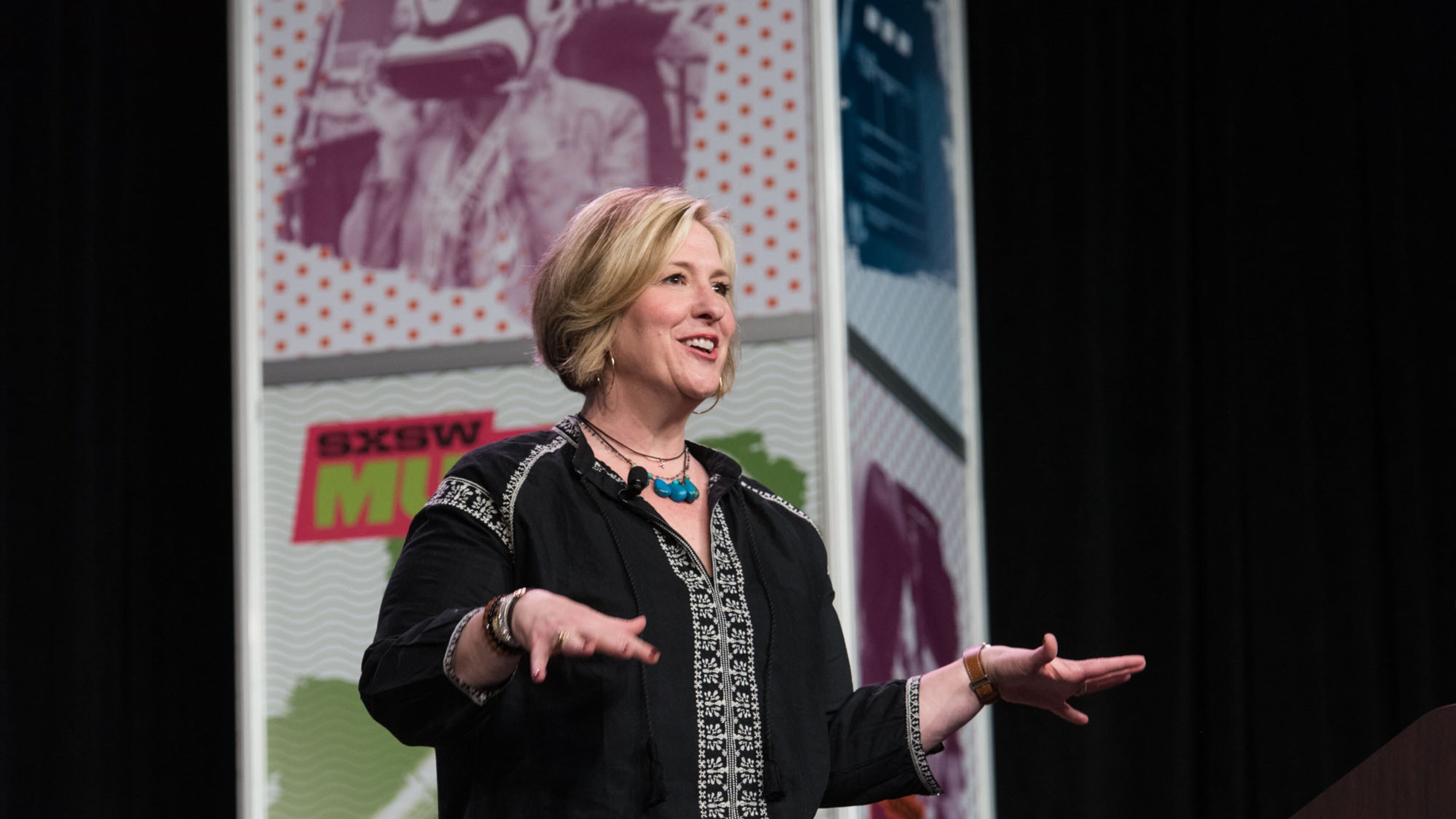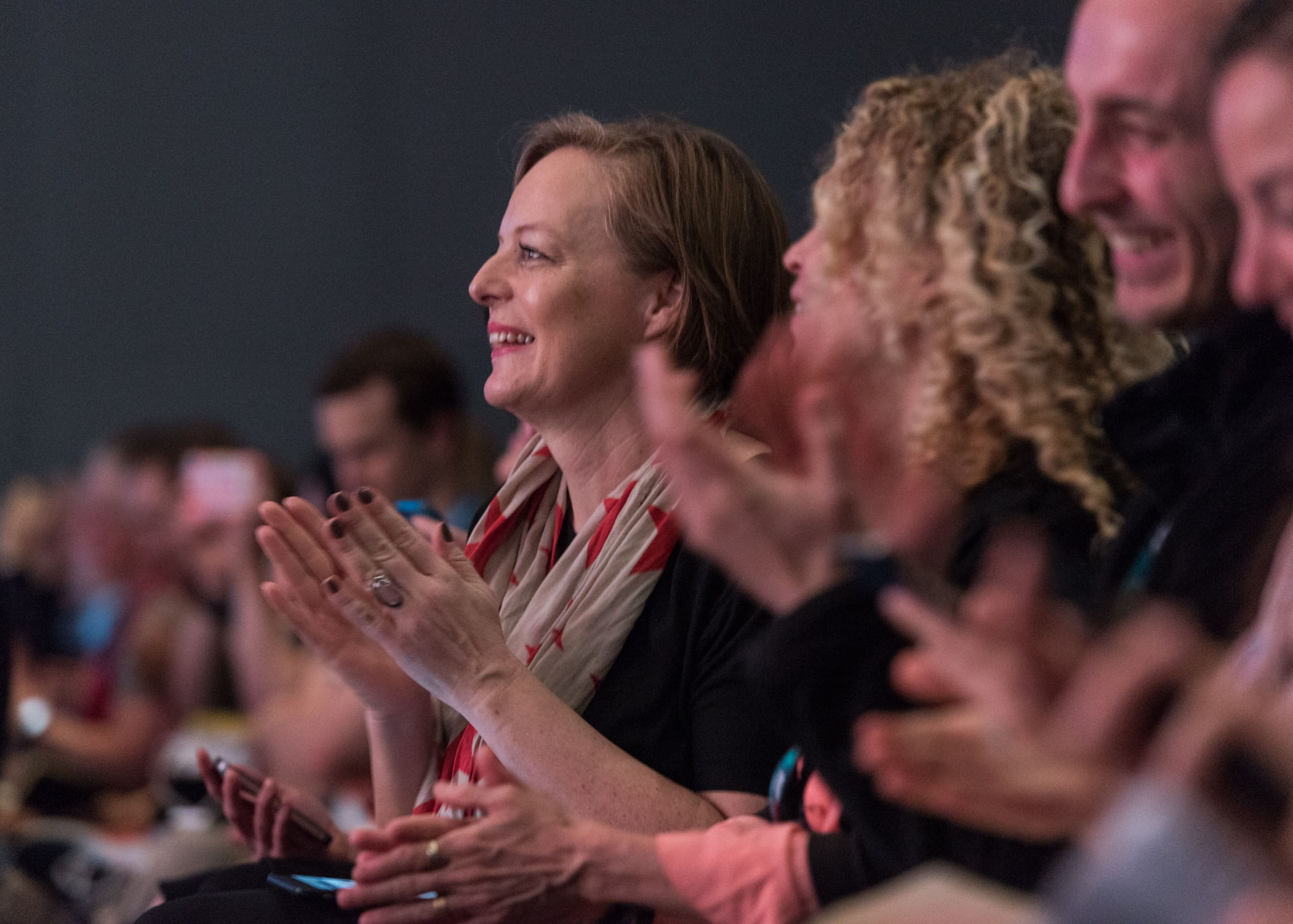SXSW keynote: We all fall down; Brene Brown says it's what happens next that counts

Brene Brown, the author of three New York Times bestsellers, "The Gifts of Imperfection," "Daring Greatly," and "Rising Strong," spoke to a full ballroom at the Austin Convention Center on Saturday at the South by Southwest Interactive Conference.
The Houston-based researcher incorporated elements from all three books, especially “Daring Greatly,” and used the opportunity to talk to the creators, innovators and risk-takers in the room.
She started off by reciting the Theodore Roosevelt quote that inspired the title of "Daring Greatly":
“It is not the critic who counts; not the man who points out how the strong man stumbles, or where the doer of deeds could have done them better. The credit belongs to the man who is actually in the arena, whose face is marred by dust and sweat and blood; who strives valiantly; who errs, who comes short again and again, because there is no effort without error and shortcoming; but who does actually strive to do the deeds; who knows great enthusiasms, the great devotions; who spends himself in a worthy cause; who at the best knows in the end the triumph of high achievement, and who at the worst, if he fails, at least fails while daring greatly, so that his place shall never be with those cold and timid souls who neither know victory nor defeat.”
People are at SXSW to show their work, she said, and inevitability, there will be people who will stomp on your work. “If you spend any time in that arena, you are going to go down,” she said. “If you’re brave with your life and with your work, you are going to get your ass kicked.”
The trick is: How do you pick yourself back up and keep going, keep creating, keep showing your work. (You can read our 2015 story about "Rising Strong," the sequel to "Daring Greatly," here.)
"If you have no tolerance for failure, you will not create anything new,” she said. The second you start to learn from a failure, it stops being a failure.
The stories we make up about why those failures happen often prevent that learning. Taking a page from Anne Lamott’s “Bird by Bird,” Brown referenced the bad first drafts that writers often have to get through in order to get to the good stuff.
The initial stories we tell ourselves about an emotional crisis (or even an emotional snare) is often just that bad first draft. Pitch it, and dig even deeper for the truth.
When we hit those emotional snares, they trigger physiological responses, like a fast heartbeat or red cheeks, because our brains perceive them as threats to our survival, our place or worth in a community. "That's why they are called feelings,” she said.
To help calm those responses in the body, try box breathing. It’s a way to pay more attention to what’s going on in your head by breathing four counts up, pausing for four counts, exhaling for four and resting for four before starting again.
This is familiar with people who meditate or have a mindfulness practice, but much of America has developed a resistance to the word mindfulness. “Paying attention” is a better way to phrase it, and one that might resonate with people initially resistant mindfulness.
We make up stories that aren’t true because our brains are “conspiracy theorists” that, when faced with limited factual data points, fill in the gaps based on both our fears, values and feelings of worthiness. “The brain loves a story,” she said, so even those conspiracy theories give us an “aha” moment result, a chemical reward for the brain that happens when you can complete a story, no matter its accuracy.
"When we deny our story, it defines us. When we own our story, we2 get to write the ending," she says.
One of the most powerful ways to get to what's really going on is to start a sentence with: "The story I'm making up right now is ...." then go deep into what you're really feeling. Find that truthiest truth, she has written.

- What's the difference between shame and guilt? Shame is "I am bad." Guilt is "I did bad." Guilt is appropriate and can be corrective, shame is not.
- On focus: Multitasking is a symptom of an achievement quest, one that our society can't get enough of.
- On race and privilege: Opting not to talk about privilege (race, gender, sexual orientation, etc.) is the definition of privilege. "We gotta speak up," she says.
- "There are a million cheap seats in the world today, where people can self-protect and hurl advice at those in the arena. I'm not interested in your feedback if you're not in the arena getting your ass kicked."
- "The bravest among us will always know heartbreak because those are the people who have the courage to love someone."
- "Vulnerability is not weakness. Vulnerability is the most accurate measurement of courage."
- "Vulnerability minus boundaries isn't vulnerability. You have to share your story with the people who have earned the right to hear it."

